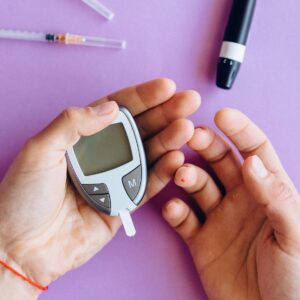Blog
The 4 Most Important Vitamins and Minerals for Your Health and Wellness
In today’s world, numerous factors emphasize the importance of vitamins and mineral supplementation to maintain vitality and enhance body functions. Modern agricultural practices, environmental toxins, the declining nutritional quality of food, and chronic stress are just some of the contributors to nutrient deficiencies. While supplements can help bridge these gaps, they should always be tailored to individual needs and taken under the supervision of a healthcare provider.
The Critical Role of Minerals and Vitamins
- Minerals and Vitamins are fundamental to countless processes in the body, including:
- Enzyme and Hormone Production: Supporting metabolic and hormonal balance.
- Growth and Immune Function: Enhancing cell regeneration and immunity.
- Reproductive Health: Regulating fertility and hormonal cycles.
- Nervous System Support: Promoting brain function and mental health.
Cells cannot function without appropriate levels of nutrients, making them essential for life. They support chemical reactions, glucose metabolism, digestion, and hormone production, influencing overall health and vitality.
The human body thrives on balance. Excessive intake of one nutrient can interfere with the absorption or function of another. For instance:
- Zinc and Copper: High doses of zinc without sufficient copper can cause iron deficiency. A balanced ratio is approximately 1-2 mg of copper for every 30 mg of zinc.
- Magnesium and Calcium: Excess magnesium can deplete calcium levels, highlighting the need for balanced supplementation.
By addressing deficiencies and focusing on the relationships between nutrients, you can create a holistic plan to support energy, immunity, and mental health. Stay tuned as we delve deeper into how to balance your mineral intake for a healthier body and mind.
Why Are Nutrient Deficiencies So Common?
Even with a seemingly healthy diet, many people struggle to meet their daily nutrient requirements. Modern lifestyles and environmental factors contribute significantly to widespread vitamin and mineral deficiencies. Let’s explore the key reasons behind this growing issue:
- Soil Depletion and Agricultural Practices
![]()
Modern farming prioritizes maximizing crop yields over nutrient quality. Over time, soil depletion has reduced the mineral content of fruits, vegetables, and grains, leaving them less nutritious than they were decades ago.
- Nutrient-Poor Diets
Many diets today are high in calories but low in nutrients. Common culprits include:
- Empty-Calorie Foods: Processed foods and refined sugars provide energy but lack essential vitamins and minerals.
- Carbohydrate Overload: High intake of simple carbohydrates depletes nutrients like magnesium, zinc, and B vitamins, all critical for blood sugar regulation.
- Excess Protein Consumption: Diets high in protein can leach calcium from bones and reduce magnesium and zinc levels, especially when combined with high-phosphorus foods like processed meats. Contrary to popular belief, drinking too much milk may not support bone health optimally, as milk’s high phosphorus content can interfere with calcium absorption.
- Exposure to Toxins and Heavy Metals
Environmental toxins like lead, mercury, and arsenic disrupt the absorption and utilization of essential minerals. Regular exposure to these contaminants through food, water, and air can significantly impact nutrient levels.
- Gut Health and Absorption Issues
A healthy gut is essential for nutrient absorption. Conditions like leaky gut, inflammation, or imbalances in gut bacteria can prevent the body from properly absorbing vitamins and minerals, even from nutrient-rich foods.
- Chronic Stress
Long-term stress depletes the body of critical nutrients like magnesium, zinc, and B vitamins. Stress also affects digestion and absorption, compounding nutrient deficiencies.
4 most important minerals:
Minerals are classified as macrominerals, needed in larger amounts (e.g., calcium, magnesium), and trace minerals, required in smaller quantities (e.g., iron, zinc).
Magnesium
- Function: Magnesium is essential for over 3,000 biochemical processes in the human body. It supports muscle function, nerve signaling, energy production, bone health, and cardiovascular health. Magnesium works synergistically with calcium, phosphorus, and vitamin D to enhance calcium absorption into bones.

- Deficiency Signs and Symptoms: Magnesium deficiency often goes undetected due to its intracellular concentration. Symptoms include constipation, muscle pain, poor recovery after exercise, migraines, heart arrhythmias, sleep disorders, depression, anxiety, osteoporosis, insulin resistance, and Type 2 diabetes.
- Foods High in Magnesium:
- Spinach: 170 mg per cooked cup.
- Pumpkin Seeds: 160 mg per handful (about 28 g)
- Black Beans: 140 mg per cooked cup (172 g).
- Quinoa: 130 mg per cooked cup (185 g).
- Chia Seeds: 95 mg per ounce (28 g).
- Almonds: 76 mg per ounce (28 g).
- Avocado: 58 mg per medium avocado (200 g).
- Dark Chocolate: 64 mg per ounce (70–85% cacao).
- Best Supplement Forms:
- Magnesium Citrate: Effective for constipation; take 1–2 hours before bed.
- Magnesium Glycinate: Excellent for insomnia, anxiety, migraines, and gut health; recommended dosage is 300–400 mg before bed.
- Magnesium L-Threonate: Ideal for brain health issues such as brain fog, mild depression, ADHD, and Alzheimer’s.
- Magnesium Orotate: Best for athletes, muscle recovery, and fibromyalgia as it supports mitochondrial ATP production.
- Avoid magnesium oxide, sulfate, and carbonate due to poor absorption.
Chromium
- Function: Chromium supports glucose and fat metabolism, enhances insulin activity, and regulates blood sugar levels.
- Deficiency Signs and Symptoms: Rare but observed in individuals on long-term intravenous feeding. Symptoms include impaired glucose metabolism and increased sugar cravings.
- Foods High in Chromium:

- Egg Yolk: 0.2 µg per large egg.
- Whole wheat: 1 µg per serving (1 slice of bread).
- Grape juice: 7.5 µg in 1 cup
- Beef : 2 µg in 3 ounces
- Green beans: 1.1 µg in ½ cup
- Broccoli
- Best Supplement Forms: Chromium picolinate is the most bioavailable form. Vitamin C enhances absorption. No specific dosage recommended for general populations. Supplement dosages of 200 mcg or 1000 mcg are prescribed for those with insulin issues like diabetes Type 2, insulin resistance or metabolic issues.
Calcium
- Function: Vital for muscle contraction, nerve signaling (e.g serotonin production), membrane permeability, and bone health. It regulates insulin secretion and supports PMS symptom relief.
- Deficiency Signs and Symptoms: Symptoms include osteoporosis, muscle cramps, anger, anxiety, tooth decay, and ADHD, tetany, convulsions, bruising in different parts of the body.
- Foods High in Calcium:
- Sardines: 240 mg per 60 grams(with bones).

- White beans: 132 mg calcium in 200 gram cooked white beans
- Sesame Seeds: 22 mg in 30 g.
- Dairy Products: 300 mg per cup of milk (244 g).
- Broccoli: 112 mg per cup (120 g).
- Caviar: 44 mg per 1 tbsp.
- Tofu: 126 mg in 120 gram tofu.
- Best Supplement Forms: Calcium citrate (absorbed efficiently in divided doses of 400–500 mg). Avoid combining calcium with iron to prevent absorption interference.
Selenium
- Function: Selenium plays a role in antioxidant defense, DNA protection, and thyroid hormone production. It supports detoxification and cell membrane protection.
- Deficiency Signs and Symptoms: Includes liver disease, susceptibility to oxidative stress, and heavy metal toxicity.

- Foods High in Selenium:
- Brazil Nuts: 544.4 µg per 1 oz handful.
- Shrimp: 42 µg per 3 oz (85 g).
- Chicken: 22 µg per 3 oz (85 g).
- Sunflower Seeds: 79 µg per 100 g.
- Seafood: Varies by type, with oysters and fish high in selenium.
- Best Supplement Forms: selenomethionine is the most bioavailable form. Selenium Supplements are important for people with thyroid issues like hypothyroidism or hashimoto disease.
4 most important Vitamins:
B-Complex
- Function: Supports stress regulation, energy production, nervous system function, and carbohydrate metabolism.
- Deficiency Signs and Symptoms: Fatigue, neurological dysfunction, and elevated TSH levels.
- Foods High in B Vitamins :
- Salmon
- Leafy greens
- Liver
- Eggs
- Black Beans
- Nutritional yeast
- Tofu
- Best Supplement Forms:
- B12: Look for methylcobalamin, adenosylcobalamin, or hydroxocobalamin; avoid cyanocobalamin.
- B6: Pyridoxal-5’-phosphate.
- Folate: Use L-5-MTHF or folate, not folic acid.
Vitamin D
- Function: Regulates calcium and phosphorus metabolism, supporting bone and immune health. Nevertheless, the thought is that vitamin D is a multifunctional hormone or prohormone, as it is also involved in the endocrine system regulation.
- Deficiency Signs and Symptoms: Rickets, osteoporosis(as vitamin D is essential in calcium absorption from intestines), immune suppression, muscle aches,back pain and depression.

- Foods High in Vitamin D:
- Fatty Fish (Salmon): 570 IU per 3 oz (85 g).
- Egg Yolks: 44 IU per large egg.
- Sun-Exposed Mushrooms: 400–600 IU per 100 g.
- Best Supplement Forms: Vitamin D3; RDA is 400–800 IU/day but up to 4,000 IU/day is safe.
Vitamin E
- Function: A powerful antioxidant that protects DNA, supports skin health, and prevents cardiovascular disease and Alzheimer’s.
- Deficiency Signs and Symptoms: Red blood cell breakage,dry flaky skin, muscle weakness and loss of coordination, and increased miscarriage risk.
- Foods High in Vitamin E:
- Sunflower Seeds: 7.4 mg per ounce (28 g).
- Avocado: 2.1 mg per half avocado (100 g).
- Nuts (Almonds): 6.8 mg per ounce (28 g).
- Best Supplement Forms: Natural vitamin E (d-alpha-tocopherol); take with fat for enhanced absorption.
Vitamin K
- Function: Essential for blood clotting and bone mineralization (promote calcium and bone binding).
- Deficiency Signs and Symptoms: Hemorrhagic disease, easy bruising or bleeding, heavy periods, and poor bone mineralization.
- Foods High in Vitamin K:
- Spinach: 145 µg per cup (30 g).

- Parsley: 164 µg per 2 tablespoons (8 g).
- Natto: 850 µg per 100 g.
4. Best Supplement Forms: Menaquinone (K2); fat-soluble vitamin so better to take it with a meal high in fat, it could be easily taken with ready supplements containing vitamin D with vitamin k2 .
For more informations about magnesium mineral, the best forms of this supplement and symptoms of magnesium deficiency follow this link below to watch the full episode on Dr Fajer AlJumairi youtube channel:

